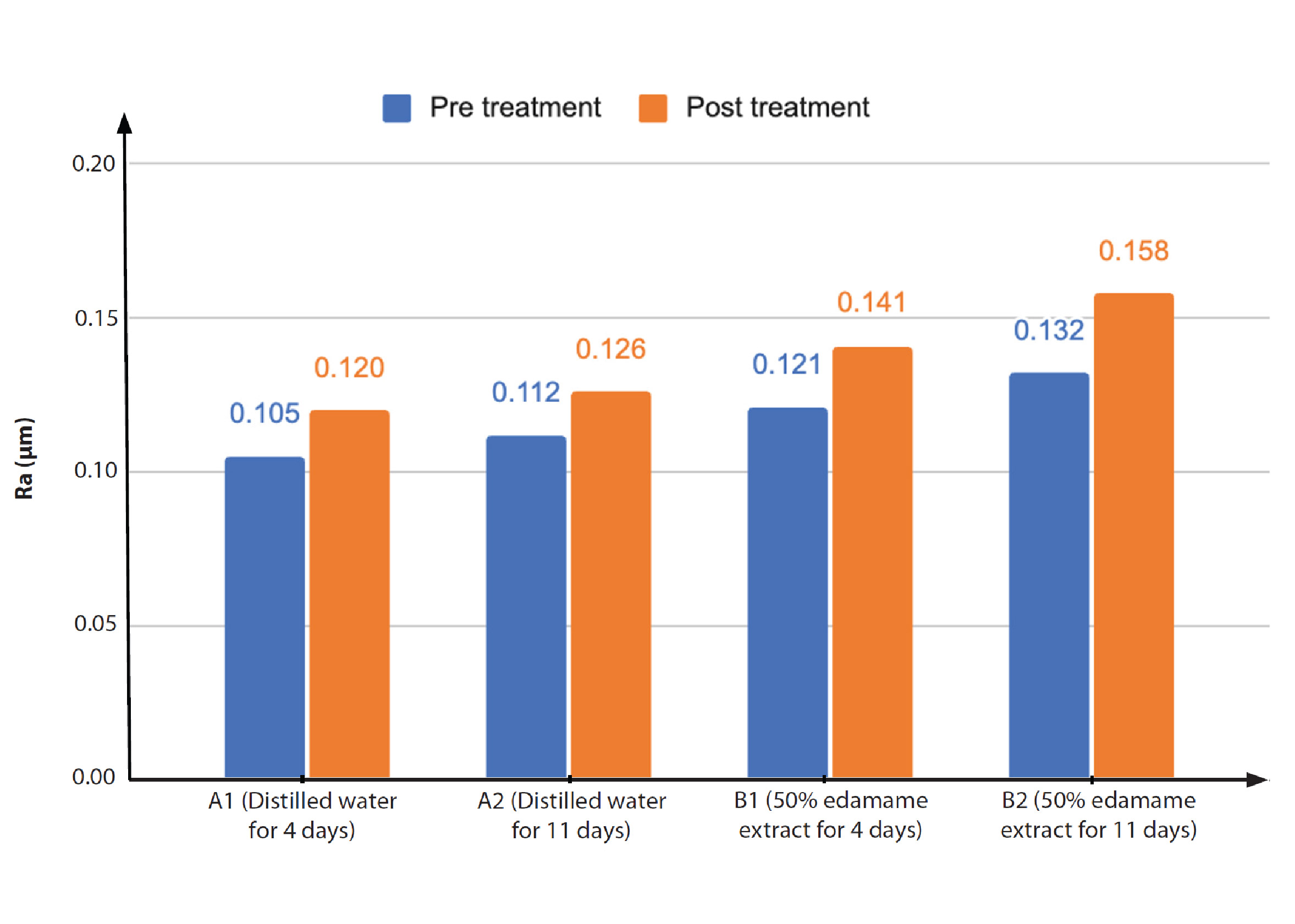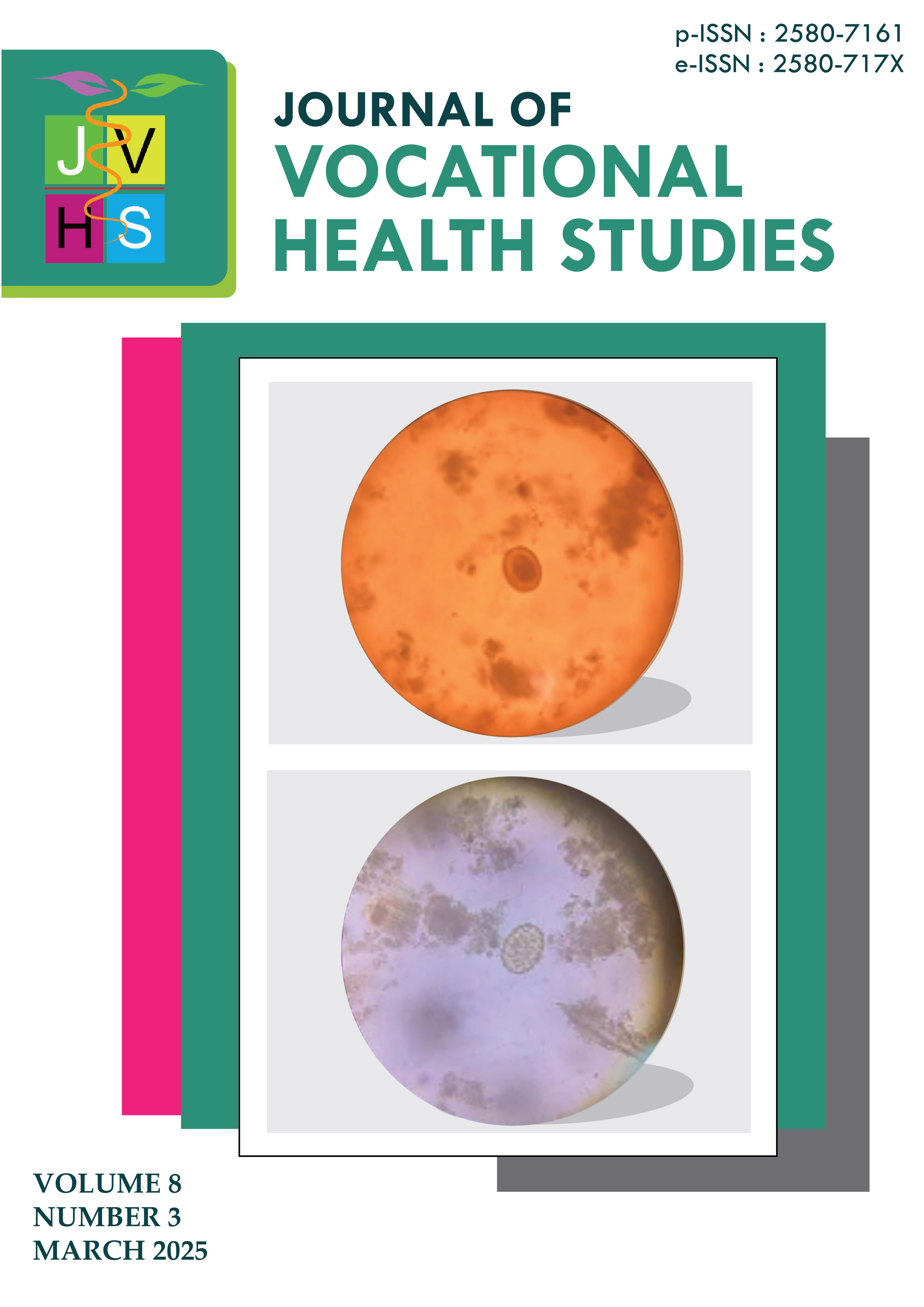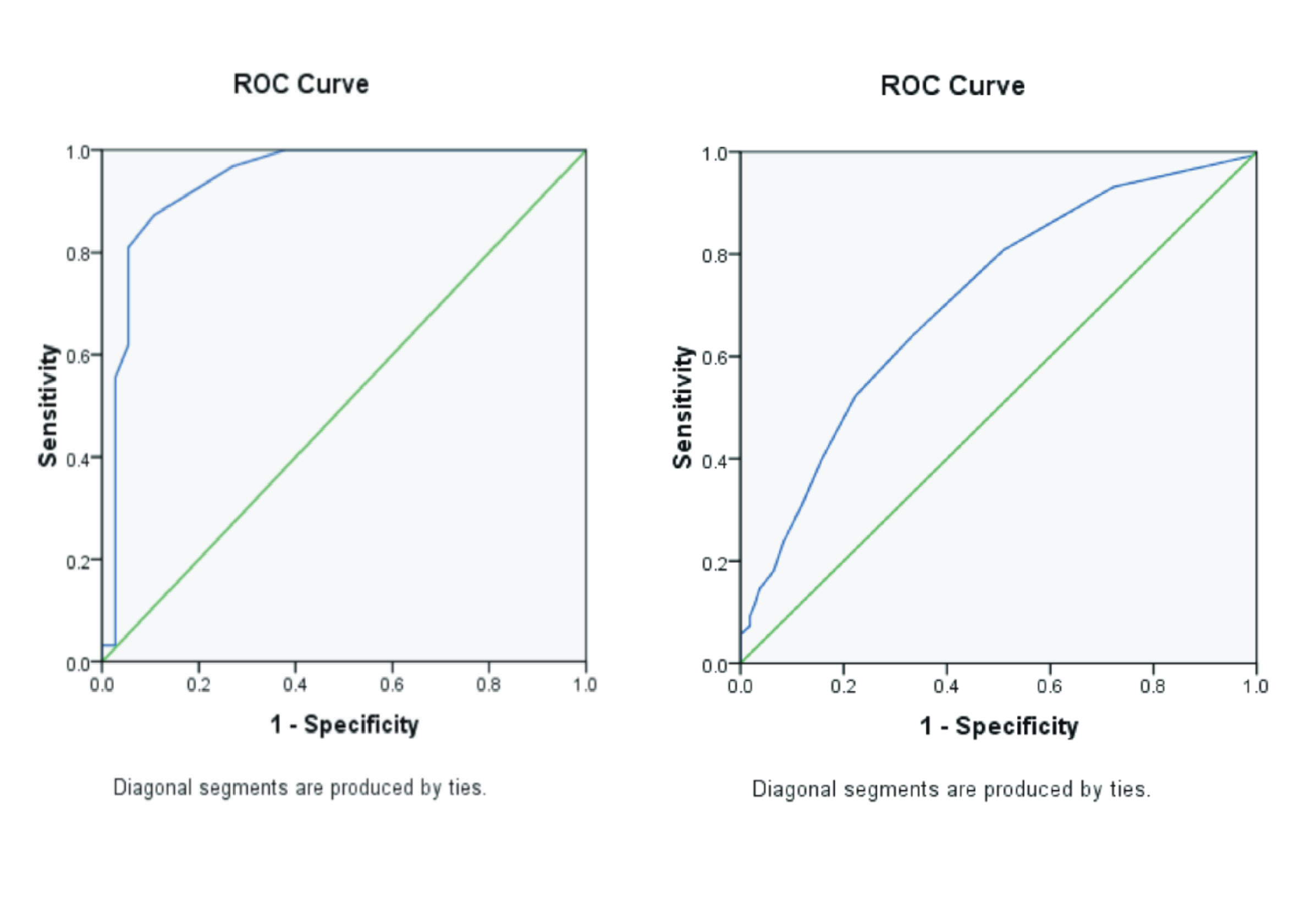THE EFFECT OF 50% EDAMAME BEAN (GLYCINE MAX L. MERRIL) EXTRACTS ON THE SURFACE ROUGHNESS OF HEAT-CURED ACRYLIC RESIN

Background: Edamame bean (Glycine max L. Merril) extract is an alternative to denture cleanser because it contains antifungal and antibacterial compounds, such as flavonoids. However, flavonoids may increase the surface roughness of heat-cured acrylic resin. Purpose: This research aims to analyze the effect of 50% edamame bean extract as a denture cleanser on the surface roughness of heat-cured acrylic resin. Method: Twenty-four square-shaped heat-cured acrylic resin plates of 10 x 10 x 2 mm were divided into four groups: A1, A2, B1, and B2. Each group was immersed in distilled water (A1 for four days and A2 for 11 days) and 50% edamame bean extract (B1 for four days and B2 for 11 days). The surface roughness was measured using a surface roughness tester TR 220. The data were then analyzed using the two-way ANOVA test followed by the Tukey HSD test with a significance value of p-value < 0.05. Result: The average surface roughness in heat-cured acrylic resin increased in 50% edamame extract immersion for four and 11 days. The highest increase was experienced in 50 % edamame extract immersion for 11 days with a value of 0.158 μm. In contrast, the distilled water immersion group noted the lowest surface roughness for four days and 11 days. Conclusion: Edamame extract significantly affects the surface roughness of heat-cured acrylic resin after immersion for four and 11 days.
Abd-Alla, H.I., Taie, H. a. A., Abd-Elmotaleb, M.M., 2019. Comparative Phytochemical and Investigation of Five Glycine max (L.) Merril Genotypes. Asian Journal of Pharmaceutical and Clinical Research Vol. 12(2), Pp. 523–534.
Abdel-Hadya, H., El-Wakila, E.A., Nasrb, S.M., 2019. Characterization and Evaluation of Antimicrobial and Cytotoxic Activities of Glycine Max Methanol Extract. International Journal of Pharmaceutical Research (09752366) Vol. 11(2), Pp. 418.
Anjai, M., Damiyanti, M., Triaminingsih, S., 2018. Effect of Immersion Time in Denture Cleanser on The Transverse Strength of Heat-Cured Acrylic Resin. Journal of Physics: Conference Series Vol. 1073(6), Pp. 062012.
Arafa, K.A.O., 2016. Effect of Different Denture Base Materials and Changed Mouth Temperature on Dimensional Stability of Complete Dentures. International Journal of Dentistry, Pp. 7085063.
Arruda, C.N.F., Sorgini, D.B., Oliveira, V. de C., Macedo, A.P., Lovato, C.H.S., Paranhos, H. de F.O., 2015. Effects of Denture Cleansers on Heat-Polymerized Acrylic Resin: A Five-Year-Simulated Period of Use. Brazilian Dental Journal Vol. 26(4), Pp. 404-408.
Dama, C., 2013. Pengaruh Perendaman Plat Resin Akrilik Dalam Ekstrak Kayu Manis (Cinnamomum burmanii) terhadap Jumlah Blastospora Candida albicans. E-Gigi Vol. 1(2), Pp. 1-5.
Devi, L.S., Setyorini, D., Hasna, H.S., Ramadhani, V., 2023. Effectiveness of Edamame Extract (Glycine max L. Merril) Against Streptococcus mutans on Orthodontic Appliances Base. Health Notions Vol. 7(2), Pp. 33-37.
Dewi, Z.Y., Insaeni, R.S., Rijaldi, M.F., 2020. Perbedaan Perubahan Nilai Kekasaran Permukaan Plat Resin Akrilik Polimerisasi Panas dengan Plat Nilon Termoplastik setelah Direndam Alkalin Peroksida. Padjadjaran Journal of Dental Researchers and Students. Vol. 4(2), Pp. 153-158.
Dwimartha, A.J., Saputera, D., Wijayanti, T.F., 2018. Efek Ekstrak Jahe Putih Kecil 70% terhadap Nilai Kekerasan Basis Resin Akrilik. Dentin Vol. 2(1), Pp. 40-44.
Fouda, S.M., Gad, M.M., Ellakany, P., Al-Thobity, A.M., Al-Harbi, F.A., Virtanen, J.I., Raustia, A., 2019. The Effect of Nanodiamonds on Candida Albicans Adhesion and Surface Characteristics of PMMA Denture Base Material - An in Vitro Study. Journal of Applied Oral Science: Revista FOB Vol. 27, Pp. e20180779.
Igboabuchi, N.A., Ilodibia, C., 2018. A Study on The Antioxidant and Antimicrobial Activities of Seed and Leaf Extracts of Glycine max (L) Merr. Asian Journal of Research in Botany Vol. 1(1), Pp. 1-8.
Kalasworojati, R.T., Soesetijo, A., Parnaadji, R.R., 2020. Pengaruh Rebusan Minyak Atsiri Daun Sirih Merah (Piper Crocatum) sebagai Bahan Pembersih Gigi Tiruan Resin Akrilik terhadap Kekasaran Permukaan dan Perubahan Warna. STOMATOGNATIC - Jurnal Kedokteran Gigi Vol. 17(2), Pp. 50-53.
Kodir, K., Tanti, I., Odang, R.W., 2017. Surface Roughness of Denture Bases After Immersion in The Fishcake Vinegar Solution. Journal of Physics: Conference Series Vol. 884(1), Pp. 012075.
Kristiana, D., Hidayati, L., Nabil, H.R., 2022. The Effectiveness of Edamame (Glycine Max (L.) Merril) Extract as Acrylic Resin Denture Cleaning on the Number of Candida albicans. Odonto : Dental Journal Vol. 9(1), Pp. 88-94.
Naini, A., 2015. Pengaruh Berbagai Minuman terhadap Stabilitas Warna Resin Akrilik. Stomagtonatic. STOMATOGNATIC - Jurnal Kedokteran Gigi Vol. 8(2), Pp. 74-77.
Ningsih, D.S., Rahmayani, L., Mubarak, Z., 2020. The Duration of using Denture Against Plaque
Onwubu, S.C., Mdluli, P.S., 2022. Comparative Analysis of Abrasive Materials and Polishing System on The Surface Roughness of Heat-Polymerized Acrylic Resins. European Journal of Dentistry Vol. 16(3), Pp. 573-579.
Ozyilmaz, O.Y., Akin, C., 2019. Effect of Cleansers on Denture Base Resins’ Structural Properties. Journal of Applied Biomaterials & Functional Materials Vol. 17(1), Pp. 2280800019827797.
Peiretti, P.G., Karamać, M., Janiak, M., Longato, E., Meineri, G., Amarowicz, R., Gai, F., 2019. Phenolic Composition and Antioxidant Activities of Soybean (Glycine max (L.) Merr.) Plant during Growth Cycle. Agronomy Vol. 9(3), Pp. 153.
Porwal, A., Khandelwal, M., Punia, V., Sharma, V., 2017. Effect of Denture Cleansers on Color Stability, Surface Roughness, and Hardness of Different Denture Base Resins. The Journal of the Indian Prosthodontic Society Vol. 17(1), Pp. 61-67.
Rifdayanti, G.U., Firdaus, I.W.A.K., Sukmana, B.I., 2019. Pengaruh Perendaman Ekstrak Batang Pisang Mauli 25% dan Daun Kemangi 12,5% Terhadap Nilai Kekasaran Permukaan (Nilai Kekasaran Permukaan) Basis Akrilik menggunakan Resin Akrilik Tipe Heat Cured). Dentin Vol. 3(3), Pp. 75-81.
Saputera, W.H., Putrie, A.S., Esmailpour, A.A., Sasongko, D., Suendo, V., Mukti, R.R., 2021. Technology Advances in Phenol Removals: Current Progress and Future Perspectives. Catalysts Vol. 11(8), Pp. 998.
Savitri, R.P.A., Naini, A., Parnaadji, R., Kristiana, D., 2022. Pengaruh Lama Perendaman Resin Akrilik Heat Cured pada Ekstrak Daun Tembakau (Nicotiana tabacum) 50% terhadap Perubahan Warna (Effect of Resin Soaking Time on Heat Cured on 50% Tobacco Leaf Extract (Nicotiana tabacum) on Color Change. Padjadjaran Journal of Dental Researchers and Students Vol. 6(3), Pp. 290-297.
Sharma, P., Garg, S., Kalra, N.M., 2017. Effect of Denture Cleansers on Surface Roughness and Flexural Strength of Heat Cure Denture Base Resin-An In vitro Study. Journal of Clinical and Diagnostic Research: JCDR Vol. 11(8), Pp. ZC94-ZC97.
Siddiq, R.H.B.H.F., 2016. Uji Aktivitas Antioksidan Ekstrak Etanol Biji Edamame (Gylcine max L. Merril) dengan Metode DPPH. Jurnal Ilmiah Farmasi Akademi Farmasi Jember Vol. 1(1), Pp. 27-32.
Sofya, P.A., Rahmayani, L., Purnama, R.R.C., 2017. Effect of Soft Drink Towards Heat-Cured Acrylic Resin Denture Base Surface Roughness. Padjadjaran Journal of Dentistry Vol. 29(1), Pp. 59-64.
Vinagre, A., Barros, C., Gonçalves, J., Messias, A., Oliveira, F., Ramos, J., 2023. Surface Roughness Evaluation of Resin Composites after Finishing and Polishing Using 3D-Profilometry. International Journal of Dentistry, Pp. e4078788.
Wirahadikusumah, A., Pratiwi, D., Andany, H.C., 2020. Pengaruh Minuman Kemasan terhadap Kekasaran Basis Gigi Tiruan Sebagian Lepasan (Kajian Berdasarkan Perbedaan Derajat Keasaman). Jurnal Kedokteran Gigi Terpadu Vol. 2(1), Pp. 27-30.
Wirayuni, K.A., 2017. Akumulasi Streptococcus mutans pada Basis Gigi Tiruan Lepasan Plat Nilon Termoplastik dan Resin Akrilik. Interdental Jurnal Kedokteran Gigi (IJKG) Vol. 13(2), Pp. 28-31.
Wirayuni, K.A., Saputra, I.M.H.D., 2021. Immersion of Heat Polymerized Acrylic Resin Dental Base in Arak Bali Against Surface Roughness. Interdental Jurnal Kedokteran Gigi (IJKG) Vol. 17(1), Pp. 22-26.
Copyright (c) 2025 Journal of Vocational Health Studies

This work is licensed under a Creative Commons Attribution-NonCommercial-ShareAlike 4.0 International License.
- The authors agree to transfer the transfer copyright of the article to the Journal of Vocational Health Studies (JVHS) effective if and when the paper is accepted for publication.
- Legal formal aspect of journal publication accessibility refers to Creative Commons Attribution-NonCommercial-ShareAlike (CC BY-NC-SA), implies that publication can be used for non-commercial purposes in its original form.
- Every publications (printed/electronic) are open access for educational purposes, research, and library. Other that the aims mentioned above, editorial board is not responsible for copyright violation.
Journal of Vocational Health Studies is licensed under a Creative Commons Attribution-NonCommercial-ShareAlike 4.0 International License




















































